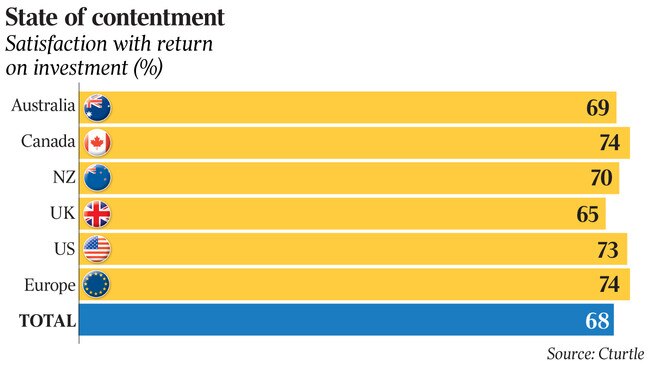Asian international students earn more if they study in Asia
International students from Asia have better jobs prospects if they study in an Asian-based offshore campus rather than go to a Western country for their degree.

International students from Asia who study in an Asian offshore campus have far better employment prospects than their counterparts who go to an institution in a Western country. And the initial earnings gap continues to increase for at least 15 years before reducing, but never reaching parity, a new study has found.
The International Student Employment Outcomes and Satisfaction study by the Vietnam-based consultancy Cturtle found that, three years after completion, graduates of offshore campuses were earning $US2865 a month compared with $US2075 for returning international graduates.
It found that seven to 11 years after graduation, offshore campus graduates were earning $US4721 compared with $US3632 for returning graduates. However, returning graduates still earned more than graduates of local institutions.
■ READ NEXT: Unis rely on international students for growth
Shane Dillon, Cturtle chief executive and founder, told The Australian the difference in graduate outcomes was significant and was probably best explained by professional and personal networks that could be nurtured by those who stayed in their home country or studied nearby, such as in Singapore. Going overseas to study, while still delivering a return on investment, carried with it both financial and opportunity costs, he said.
“Asia is very much a relationship-driven society. Most people get jobs through people they know. When those who go overseas return, they find they don’t know anyone. Their relationships atrophy and they struggle to get a foot in the jobs market,” Mr Dillon said.
The study included 16,830 responses of graduates from eight Asian countries. It covered both undergraduate and postgraduate students and looked at six main destinations: Australia, Canada, New Zealand, Britain, the US and Europe.
Overall, US and Canadian graduates had the most positive experience, while Australia was ranked second-lowest to Britain in terms of satisfaction with return on investment.
Indian students remained by far the least satisfied, both in terms of their experience and return on investment, suggesting agents overhype the value of study abroad.

Mr Dillon said there was widespread reluctance among local employers to take on recently returned graduates. They preferred employees with three to four years’ experience under their belt.
“Fresh (returning) graduates don’t have networks, they have been made unrealistic promises by agents, and they have really high expectations,” Mr Dillon said. However, 71 per cent of international alumni get a job within three months of graduation.
Mr Dillon said his message to universities in all destination countries was that they needed to work more closely with graduates and employers to help them find meaningful employment when they returned home.
“We just wrote to 300 universities asking who looks after or supports international students’ employment and the vast majority outside Australia didn’t have a single person working in that area,” he said.
Australia, he noted, was ahead of the field in this area.
“Australian universities have realised that employment is a critical factor in regards to whether an international graduate will recommend the institution,” he said.
This was important since most international students are now postgraduates who, the survey reveals, are less likely to use agents and more likely to be influenced by word of mouth when making a decision about where to study.
Overall, graduates of US universities were the highest earners in their first job, with one in three earning more than $US2000 a month. That compares with 23 per cent for Australia, 25 per cent for Canada and just 13 per cent for New Zealand.



To join the conversation, please log in. Don't have an account? Register
Join the conversation, you are commenting as Logout